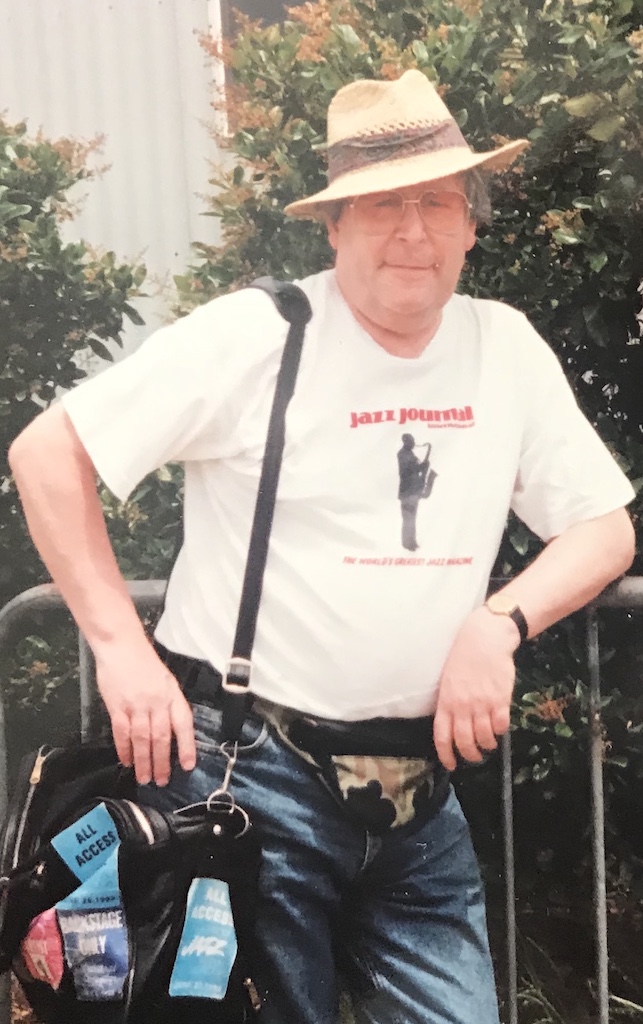Up You Jack
When a criticism begins “A revolutionary alto saxophonist named Ornette Coleman plunged jazz down a blind alley some years ago when he claimed that it was impossible to play anything new on the chord changes of standard tunes”, the reader might imagine that the article was written in the sixties.
Actually he would be very wrong, because this appeared in London’s Evening Standard on March 5th, 1980. What is more surprising, however, is that this assassination of Ornette Coleman, which continues for over half of the piece, is really a review, singing the praises of the gifted George Coleman.
That the Evening Standard has itself a jazz critic who knows little about jazz is their business. That Mr. Jack Massarik clings to old sixth-form ‘intellectualism’ by comparing the harmonic subtleties of bebop with the music of J. S. Bach is forgivable. What is less acceptable is the fact that he changes jazz history to suit his own reactionary ideas.
I will not bore our informed readership by listing standard tunes that Coleman has developed in the near-orthodox bop manner, nor will I embarrass Mr. Massarik with the names of Ornette’s twelve-bar performances that are already yardsticks by which contemporary blues playing is judged. Nevertheless, I would like to take up his next statement in which he asserts that “A lot of jazz musicians believed him at the time, and some still do.” Here we have the real crux of the matter.
From what source did Mr. Massarik get the information that Coleman ever said that it was impossible to play anything new on the changes of a standard? In several conversations I have had with him, he has never said anything of the sort, and most of these discussions were about his musical ideals. Admittedly the main body of his work has deliberately avoided the paths set out by chord sequences, choosing instead that his melodically free solos should induce their own sequential progress.
Yes, Mr. Massarik, many musicians did believe this was a highly valid approach to jazz soloing, but very few of the established players at the time saw it as the only way to play. What is true is that subsequently nearly all of the younger men have taken the ideals of his musical vernacular, together with those of men like Cecil Taylor and to a lesser extent John Coltrane, as a starting point for their own development.
This excludes the cosy anachronism of the odd characters such as Scott Hamilton, but it presents a situation that is the antithesis of Massarik’s “some still do”. The fact is that nearly all do, if we are to accept that a music as vitally creative as jazz should progress.
The spirit of Ornette Coleman’s music has entered nearly every fabric of modern jazz and the music is the richer for that fact. In many ways it is similar to the way in which bop infiltrated all of the dance music of the fifties. In the finish it became so much part of the overall sound that people hardly noticed it.
There are certainly very few saxophonists today who do not transcend the language of bop in some way or another, very few who do not shade their styles with ideas culled from the free movement. A saxophonist does not need to play free form to colour his performance with something from the music of the free pioneers.
I can only suggest that Mr. Massarik switches his reading away from the Sunday supplements.
Jack Massarik replied to Barry McRae in the July 1980 issue of Jazz Journal:
‘Free’ Speech
Sir,
That “Up Yours, Jack” diatribe by Barry Macrae in the May issue’s ‘Beyond The Mainstream’ section was certainly less boring than his usual contribution, but I wish he’d taken the trouble to spell my name right. After all, jazz only gets 250 words a month in the London Evening Standard, whereas Barry seems to get unlimited licence in your pages to rant on like some kind of Ayatollah Hogmanay.
Actually, I can understand why he sounds a little more edgy and irritable than when I first contributed to this magazine, from Paris. Long years spent listening exclusively to saxophonists who sound like chickens being choked to death and bassists who sound like they’re rubbing over-inflated balloons with sandpaper would be enough to make anybody feel edgy and irritable.
I suspect he must also be a iittle worried by the fact that erstwhile chicken-chokers like Archie Shepp, George Adams, Arthur Blythe and many more have returned triumphantly to the mainstream, playing jazz which is magnificent both melodically and rhythmically. If this trend continues, how long can it be before someone realises that there is no need for an avant courier at all?
Yours very sincerely
Jack Massarik
Evening Standard, London
















